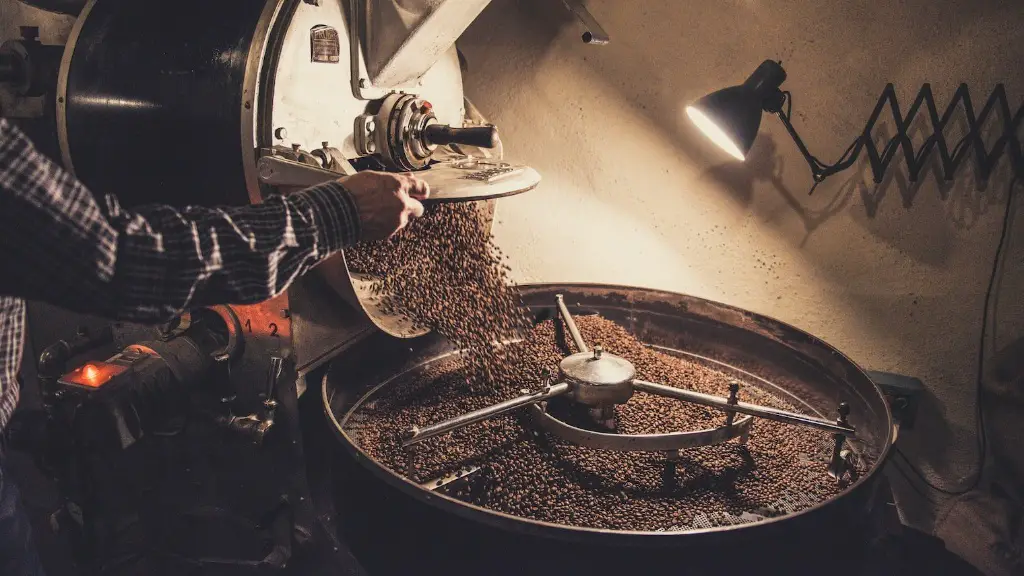At first thought, it seems logical to drink coffee before a dreaded allergy test. After all, the caffeine can surely provide a much needed boost of courage and alertness. But is it actually OK to drink coffee before an allergy test?
Drinking coffee before an allergy test could have an effect on the results, as the caffeine present in the coffee could trigger a false positive, especially since it is a stimulant. According to an article from VeryWellHealth, “caffeine is a strong stimulant drug that has been shown to increase blood pressure and heart rate […], this could potentially cause a temporary allergy-like reaction, especially during allergy testing with intradermal skin testing or skin prick testing”. This could possibly lead to an inaccurate reading, as the stimulation by caffeine can lead to an exaggeration of the body’s reaction if an allergen is present in the test.
However, this theory has yet to be confirmed. Dr. Neeta Ogden, an allergist in New Jersey, has conducted several studies which suggest that coffee doesn’t interact with the results of the allergy test in the way some allergists assume. In an interview with MedicalDaily, she said “None of the patients tested were found to have an interaction between coffee and the skin prick test”. Dr. Ogden’s research doesn’t necessarily deny the idea that caffeine could cause an inaccurate result in an allergy test, but it strengthens the importance of adequate research before jumping to conclusions.
Given the divided opinion in the scientific community, those who are planning to take an allergy test should take extra precautions. And the best way to prepare for the test is to drink plenty of fluids, avoid exercise and alcohol for 48 hours before taking the test, and avoid taking antihistamines for a week before the test. Furthermore, for optimal results, it is also recommended that one cut back on caffeine for at least 24 hours prior to the allergy test to reduce any potential disturbance to results.
Risk Factors
Caffeine can play a role in the unfamiliar territory of anaphylaxis – the severe form of allergic reaction which can very quickly result in shock and even death. According to an article by Amanda Gardner of HealthDay, caffeine has been found to make certain people “more prone to the severe reactions of anaphylaxis”, as it causes their already sensitive reactions to become more extreme. So for those at risk of anaphylaxis, avoiding caffeine should be taken seriously.
In order to assess the risk to yourself, pay extra attention to your diet over the days leading up to the test. Caffeine is located in many different types of food, beverages and even medicines, such as chocolate and sodas. So always be sure to double check what food and drinks you’re consuming before the test. If you find that you’re at high risk of an adverse reaction to certain allergens, it’s essential to consult your physician to see if it would be safer to avoid caffeine intake entirely.
Pros and Cons
The debate over whether to drink coffee before an allergy test has pros and cons on either side. On one hand, coffee can provide an energy boost and help some people focus while they prepare to take the test. On the other hand, its stimulating effects can cause a false positive. When making your decision, it’s important to weigh both sides fairly. Ultimately, if being prepared for the test means avoiding caffeine, then that should be the approach that is taken.
Though some may argue that one cup of coffee won’t have a noticeable effect on an individual, you should still err on the side of caution and avoid caffeine entirely before an allergy test. After all, the uncertainty of an inaccurate result is not worth the risk if you can avoid it. However, if the medical team running the test gives you the go-ahead to have a cup of coffee, then it’s probably safe to do so. But be sure to consult with the professionals first.
Limitations and Solutions
The main issue with drinking coffee before an allergy test is the potential for false positive results. As mentioned previously, this can be prevented by cutting back on caffeine consumption before taking the test. For those who want to stay alert and wide-awake, there are alternatives to coffee, such as teas, sparkling water and herbal tonics. But it all depends on the individual, as some may have better luck with one option compared to another.
In addition to cutting back on caffeine, other precautions might be needed. For example, if possible, patients should wear loose-fitting clothing and no makeup or jewelry that could interfere with the results. This can help keep the results more accurate and make sure that the allergens being tested are easily accessible to the allergist.
Precautionary Measures
Caffeine consumption can lead to a false positive on an allergy test if taken too close to the appointment time. To avoid potential problems, it is better to avoid coffee altogether on the day of the testing or to at least keep coffee intake to a minimum. Additionally, remember to drink lots of fluids and to confirm any needed precautionary measures with your allergist.
When it comes to taking an allergy test, the best bet is to take all the needed precautions to get a more accurate result. This includes avoiding caffeine, eating well-balanced meals, taking plenty of fluids, and avoiding certain types of medication or supplements. Doing so can help ensure that the results are as accurate as possible.
Testing Allergies Accurately
Allergy testing is becoming more and more popular, but with that comes the need to be aware of the risks. In this case, the risk comes from caffeine as it can interfere with the accuracy of the results. So when it comes time for your next allergy test, it is best to err on the side of caution and avoid caffeine altogether.
In addition to avoiding caffeine, consider other changes you can make in order to get the best possible results from the test. Make sure you are eating well-balanced meals, avoiding certain types of medication or supplements, drinking plenty of fluids, and wearing loose-fitting clothing that won’t interfere with the results. All of these steps can help make sure you get an accurate result.
Importance of Preparing for the Test
For those planning on taking an allergy test, it’s important to prepare in order to ensure an accurate result. It is essential to avoid caffeine and any other stimulants in the days leading up to the appointment, and to drink plenty of fluids and avoid exercise and alcohol. These simple steps can go a long way in testing for allergies in a more accurate and reliable manner.
Overall, drinking coffee before an allergy test can certainly have a negative impact on the results. But it is important to remember that this is not yet a proven fact. What is true, however, is that it is generally best to avoid caffeine before the test in order to give the most accurate result. If one chooses to do so, they should also make sure to eat a healthy diet, avoid alcohol and certain types of medication or supplements, and take all the necessary precautions that the allergist recommends.
Avoiding Risky Situations
In some cases, individuals may be at a higher risk of anaphylaxis – the severe form of allergic reaction which can quickly result in shock and even death – so it is important to pay extra attention to their diet over the days leading up to the test. Caffeine can also be located in many different types of food, beverages and even medicines, such as chocolate and sodas, so it is crucial to make sure you know exactly what food and drinks you’re consuming before the test.
Additionally, if someone needs to take an allergy test and they are worried about a severe reaction, they should consult their physician to see if it would be safer to avoid caffeine intake entirely. Although this may seem like an extreme step, it is important to remember that in order to get accurate results, not taking any risks is always the best approach.
For a successful and accurate test result, it is best to consult your allergist and make sure to follow their advice. Avoiding caffeine and other potential risk factors, such as certain types of supplements or medications, can help ensure that the test results are as reliable as possible. With all this in mind, one can be sure to have a successful and accurate test result.




